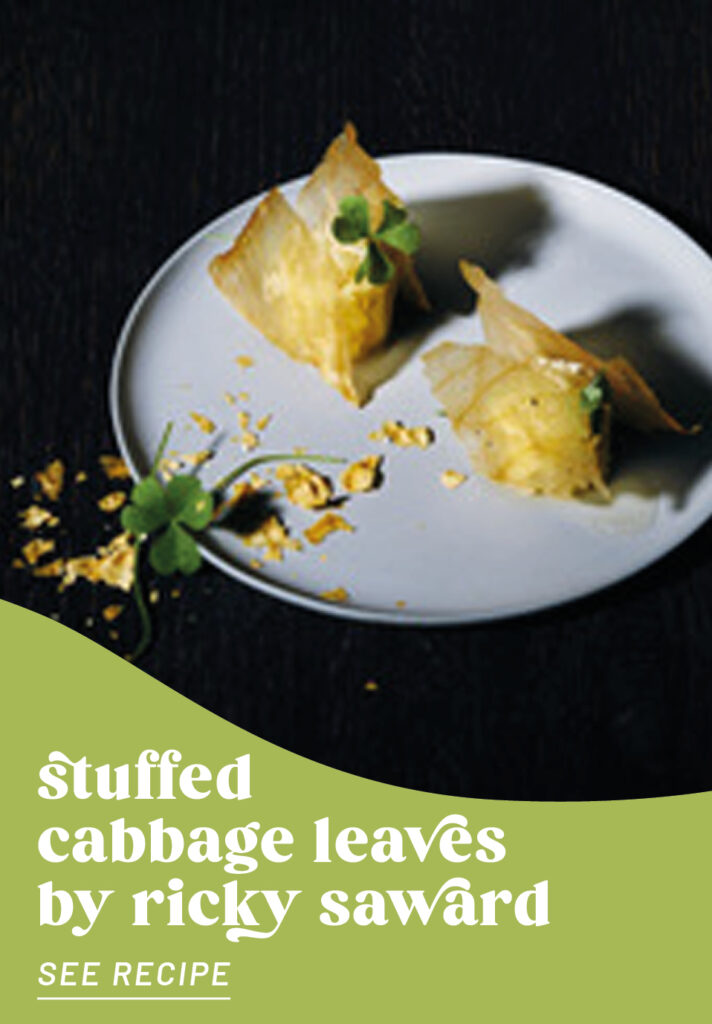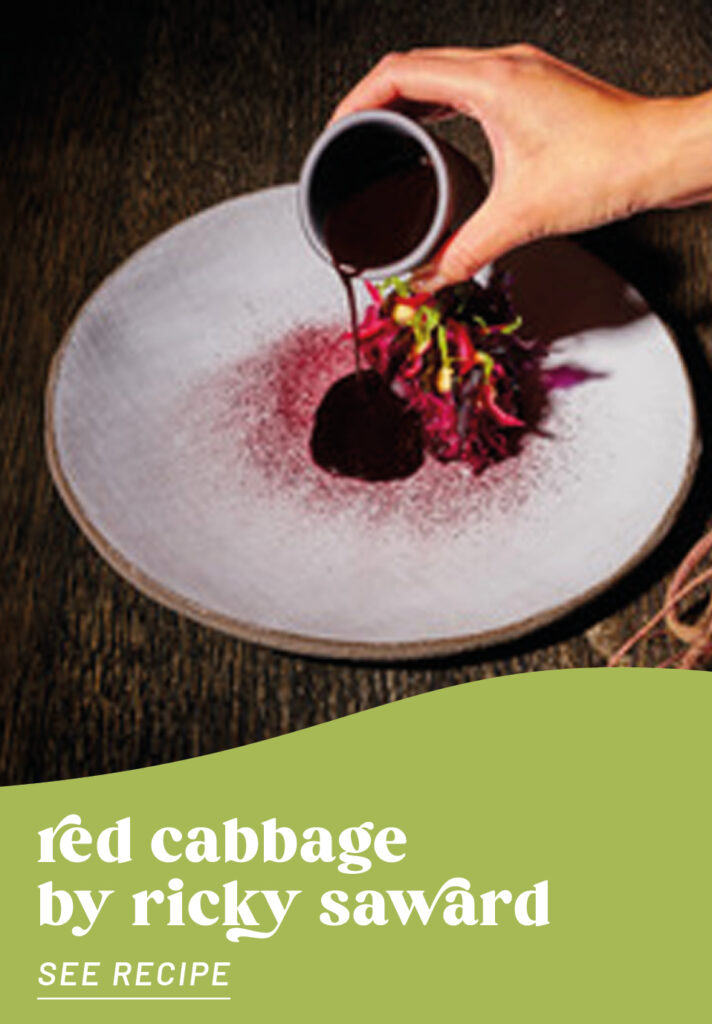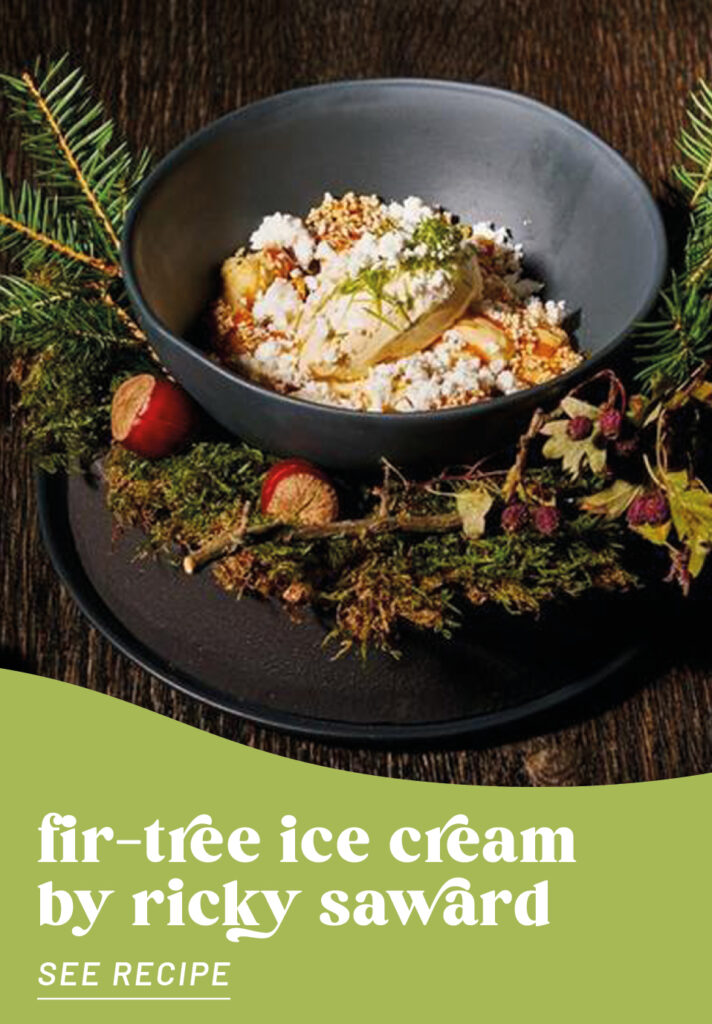VEGAN CHEF
Ricky Saward – an interview with a shining star in the world of vegan food

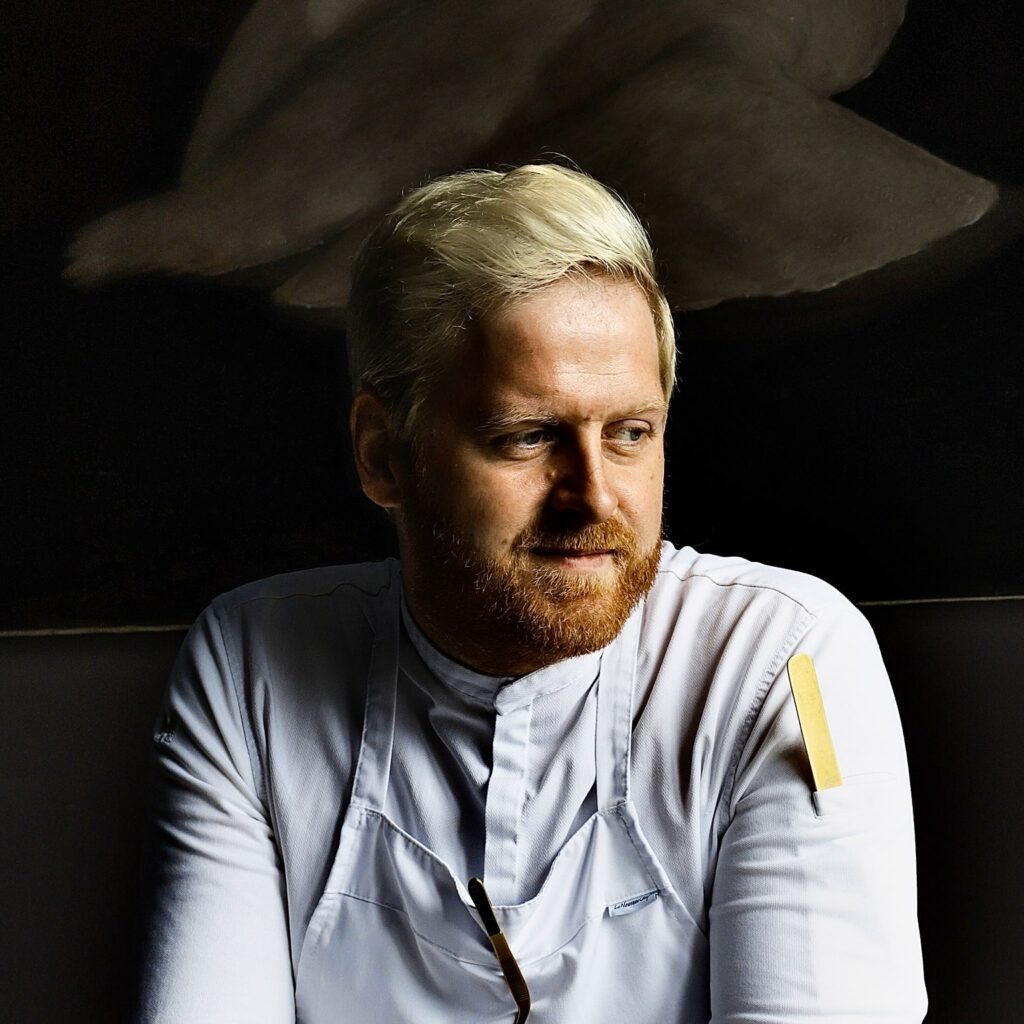
Vegan cuisine at the very highest level
Ricky Saward was the first – and, for a long time, the only – vegan Michelin-starred chef in the world. In 2019, he took over the gourmet restaurant Seven Swans in Frankfurt am Main, Germany, and brought about a vegan revolution there. And all of this at Michelin-starred level! And of course, he’s there in the kitchen himself with his team, trying out and perfecting his top-level plant-based culinary creations. As a chef, he’s a perfectionist, plant expert and artist all rolled into one – as well as being very likeable, refreshingly undogmatic, and authentic.
We asked him a few questions about his career, motivation, ideas and aims in terms of vegan cuisine. And we wanted to know how all of us can learn from his experience, to help us make vegan meals which fit into our busy lives but which have a touch of gourmet flair.
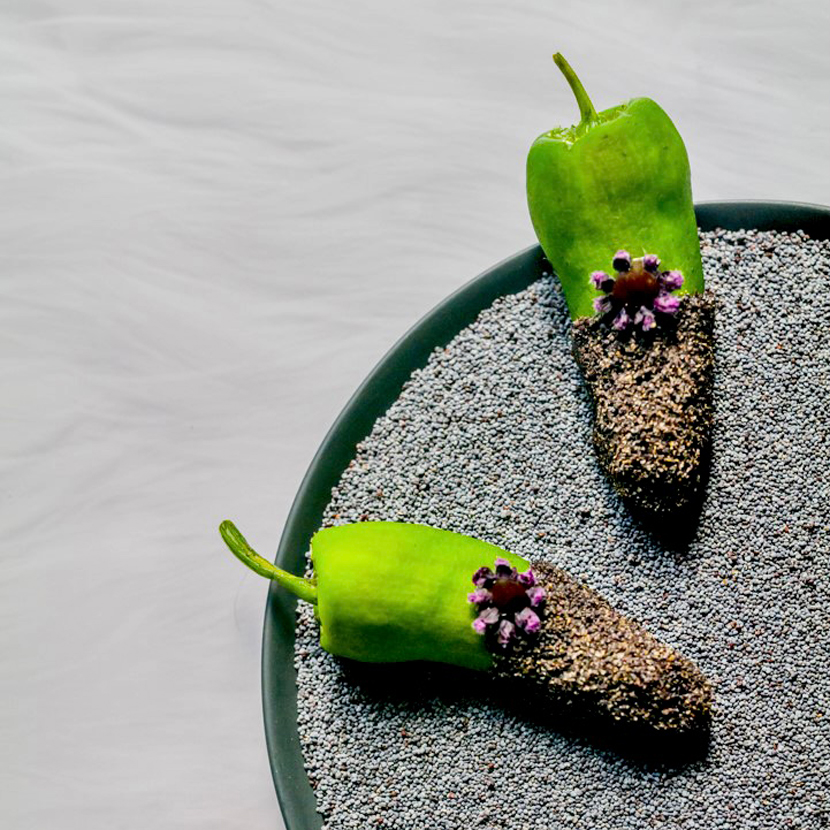
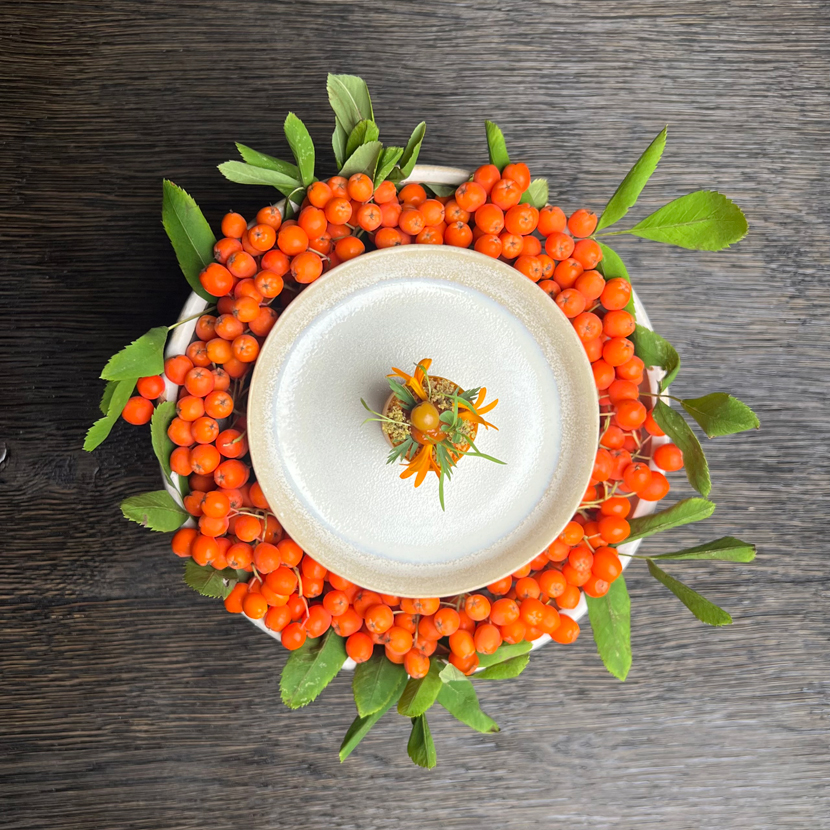
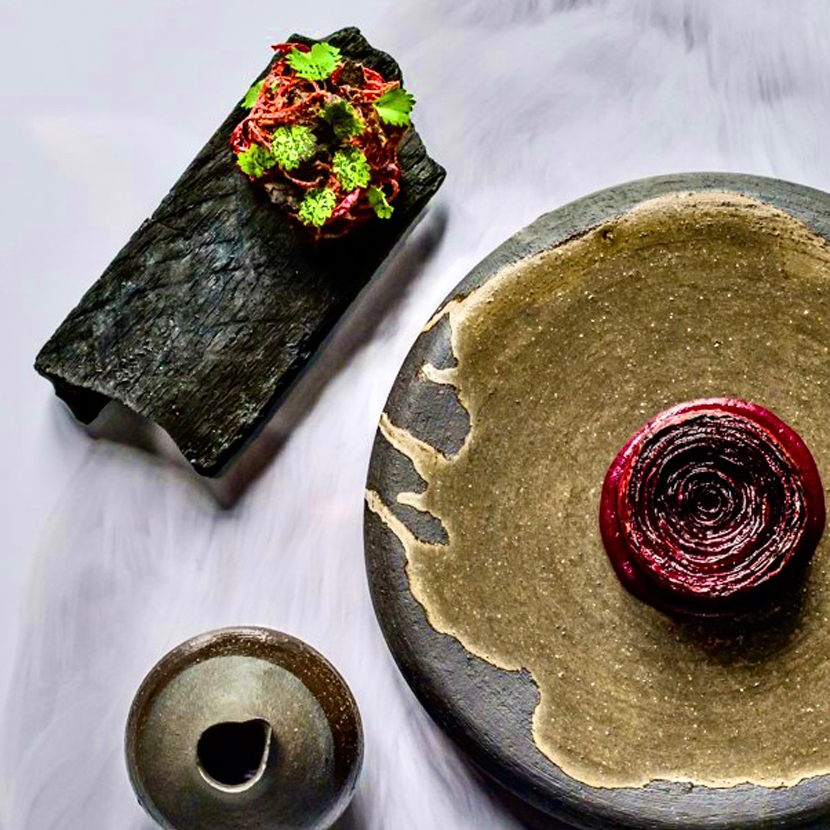
It all began with taking joy in plant-based raw ingredients
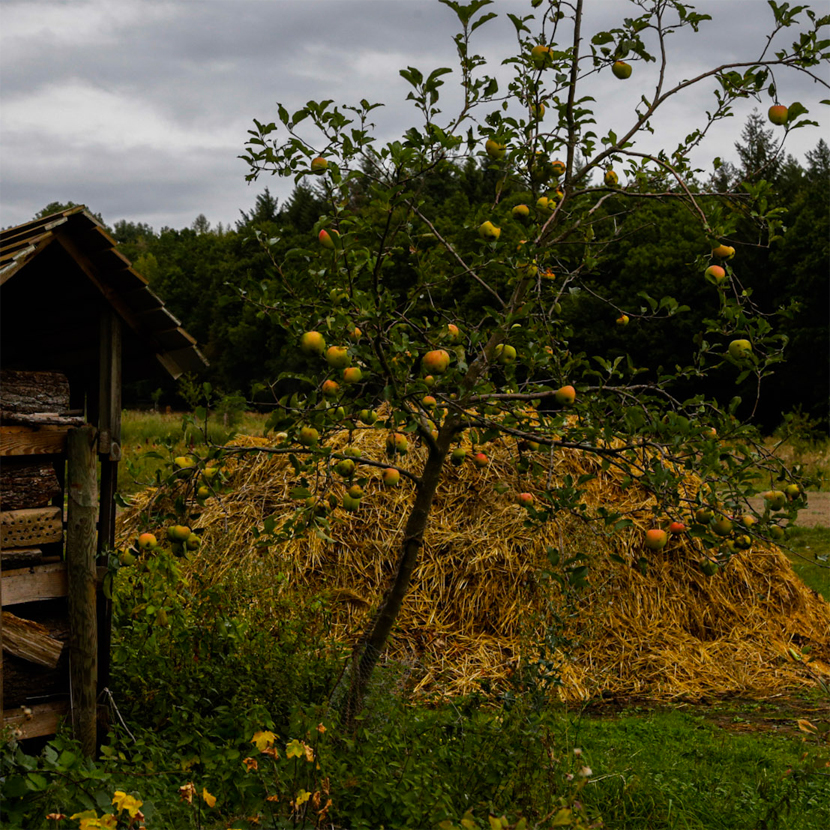
Velivery: Hi Ricky, we’re very happy to be able to talk to you today. How did you start cooking in the first place, and why did you decide to become a chef?
Ricky: At the tender age of 16, I actually didn’t have the faintest idea what I wanted to be. I didn’t want to continue with school, because I’m more of a doer. When we had to do work experience while at school, my Mom, who’s a trained domestic scientist, suggested that I try my hand at working in a canteen kitchen. I did, and I did it in an old people’s home – so a far cry from high-quality cooking.
But I saw it through, and right from the start, I took joy from taking the raw ingredients and making them into something beautiful and tasty. It’s similar to a craftsman or artist creating something beautiful from their raw materials. To me, it was about this type of creation, and about putting a smile on the residents’ faces.
Then I completed a three-year-long classical chefs’ training. That was in the Münsterland area of Germany. I’m originally from a German village near to the border with Holland. After that, the idea of going abroad appealed to me in particular. I saw it as an opportunity. I spent two years in Vienna to begin with, and then went to Australia and New Zealand before returning to home turf. That’s a very brief summary.
Velivery: Was it vegan cooking right from the get-go? Or how did that come about?
Ricky: Back then, there wasn’t even any discussion around the topic. Veganism didn’t become a real trend until a few years ago. I cooked French-inspired cuisine to begin with, and then Asian elements were added to that after spending time in Australia and New Zealand. Vegetables tended to be a side dish. It never would have occurred to me to cook exclusively vegan food.
Suddenly a top chef de cuisine at the Seven Swans, which has its own permaculture garden
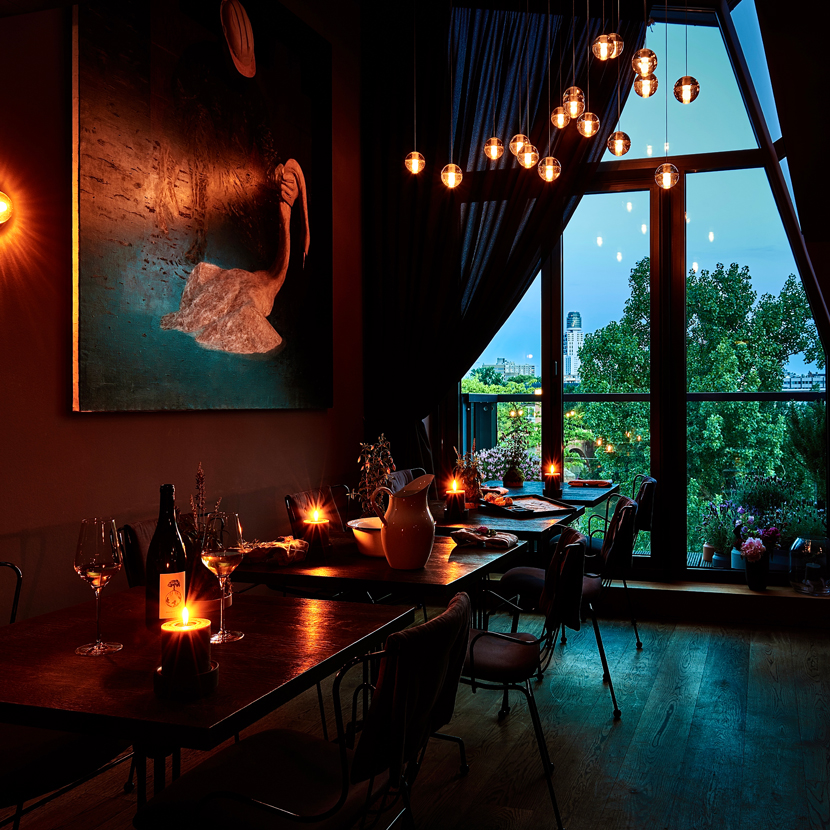
Then, in 2018, I got a call from the Seven Swans restaurant in Frankfurt am Main, which at the time was already a Michelin-starred vegetarian restaurant. That was how I ended up in my first position as a chef de cuisine. Maybe I was a bit naive back then. I was taking a massive risk, because everything was new: Michelin-starred cooking, heading a team, planning menus, all on top of vegetarian cooking etc. But I just got on with it. Because opportunities like that don’t come along every day.
Velivery: What was special about Seven Swans right from the start?
Ricky: The Seven Swans already had its own permaculture garden with a hectare of land, in Bad Homburg. That was something that I wanted to follow through on completely authentically right from the start – a seasonal, locally grown, farmto table approach – being self-sufficient. In the first year, especially, it involved an awful lot of work: making a list of seeds, planning what to grow, calculating quantities, planning the crop rotation, mulching, composting, sowing.. it was all learning by doing. By the first year we had three hectares, and after five years we had five hectares. And there were only two of us – David Schäfer and I – in addition to three boys from the sheltered workshop, because we also want our project to give back to society.
Vegan revolution in the test kitchen – what fascinates Ricky
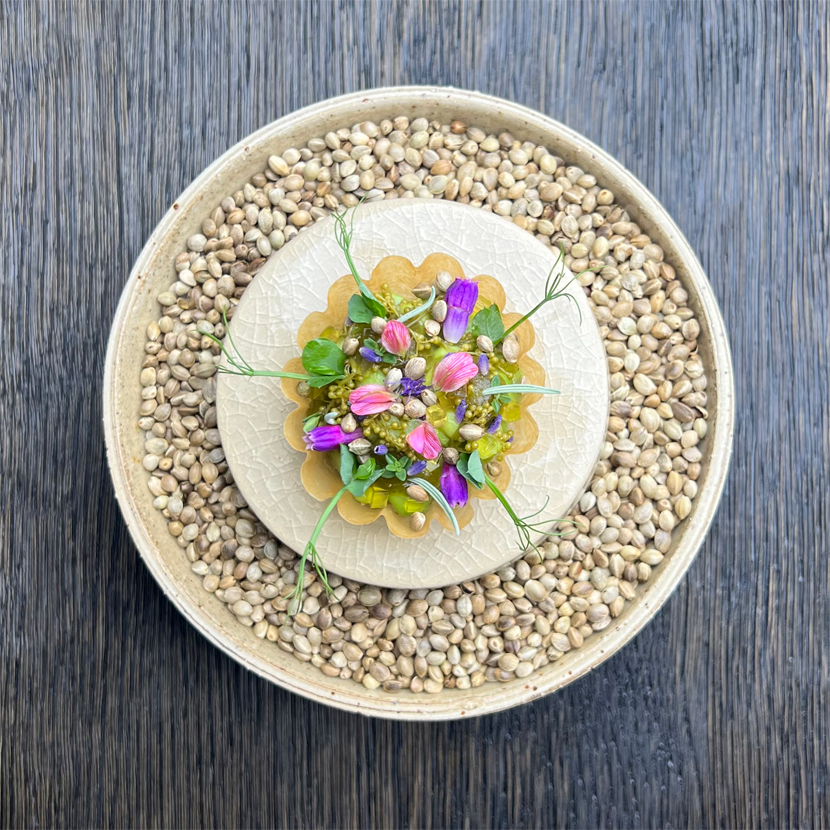
Velivery: Why did you then decide to go completely vegan? What is it about vegan cuisine that appeals to you?
Ricky: For me, it was never about it being a trend, or even about the money – which is what people sometimes assume. I wanted to follow through on the permaculture cultivation approach in a very straightforward, thorough way. From day one onwards, my cooking was around 80% vegan. So all that was left to do was to find alternatives to dairy products. And that was easy. I chose not to use imitation products for meat and fish. Instead of looking for another way to achieve them, I just leave them out. I really wanted to create something of my own rather than replacing something. I don’t like the label “vegan” that much, because it just creates conflict. Between hype and rejection. We have too many labels in our heads as things are.
Instead, I see it as a challenge. For example: How can I bake without eggs? I can use linseeds. Our kitchen is a real “test kitchen” where things get tried out and we go down creative new pathways. In this way, we’ve built up incredible amounts of knowhow. And what makes it interesting is taking a new angle on local produce time and time again: being about to take the same carrots I used last year and doing something completely different with them.
Stones and stars: Of setbacks and shining successes
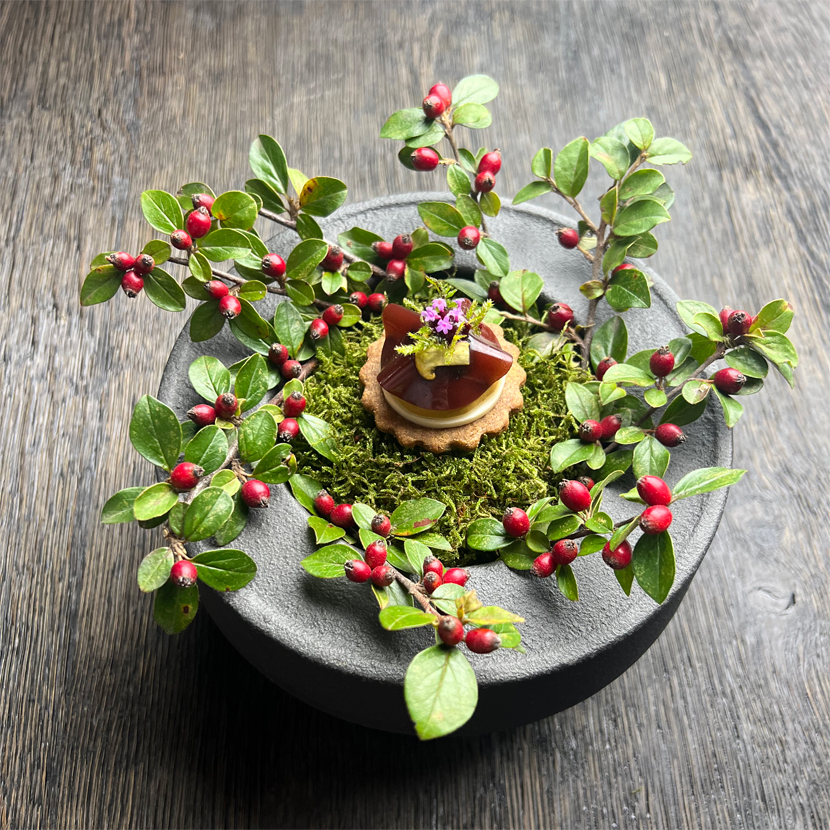
Velivery: I’m sure that the last three years in particular can’t have been easy.
Ricky: In 2019, we had gotten to where we wanted with our cultivation plan. We had 340-350 different types of herbs and vegetables. Then Covid happened, and we had to shut the restaurant from one day to the next. We had already sowed our seed and bought in… in such cases, investors lose their interest too. It’s tough. We had never had it easy. Of course, many people ridiculed our vegan menu plans, and made fun of us. Then, 2020/2021 was a massive setback. But even if the path is uneven, I carry on. That’s something that most people underestimate.
Velivery: Despite all the negative speculation after switching to vegan cuisine at your restaurant, you kept your Michelin star. As such, you were the first – and, for a long time, the only – vegan Michelin-starred chef in the world. What does that mean to you?
Ricky: That’s a tough one. I’m happy to get any kind of award. It’s always a special moment. What’s most important are my own standards – the expectations I have of myself. I know how much time, passion, energy and tears I put into my work. Which means I’m all the happier to be given recognition for what I do. A Michelin star is like an Oscar for chefs, which means everyone knows its significance. At the end of the day, though, it’s not about the number of awards you get – it’s about what your customers think of your food. They’re the ones I’m cooking for.
Winning people over with veg – plant-based cuisine needs innovation and love
Velivery: I can tell that your relationship to nature and to cultivating plants is important to you. Is there one vegetable which especially inspires you?
Ricky: I wouldn’t like to choose. I’m really only just starting to fall in love with vegetables. That’s what happens when you really think deeply about them – otherwise, they’ll just remain a side dish. Blanched, seared, at best as a puree. I investigate the texture, flavor, the different varieties, the differences depending on the soil type, preparation techniques, sometimes very old ways of preparing the veg, and then always try to do something new with it: fermenting, pickling, drying – to name but a few. It makes the veg taste different every time. It’s a never-ending story of flavor diversity. But it’ll take a while before people in general understand that in terms of culinary skills, vegetables are a thousand times more challenging and complex to prepare than a piece of meat is.
Velivery: What other goals do you have in the kitchen?
Ricky: I want to win people over with veg. With creativity. I don’t want to compare myself to restaurants that serve meat, or with any social media hype. I want to create something of my own – I don’t want to copy or replace anything. I refuse to be swayed – for example, I’ve never bought a cookbook. It’s like an artist being inspired by a blank canvas: I take inspiration from the raw ingredients.
Thinking beyond the salad, and getting creative yourself
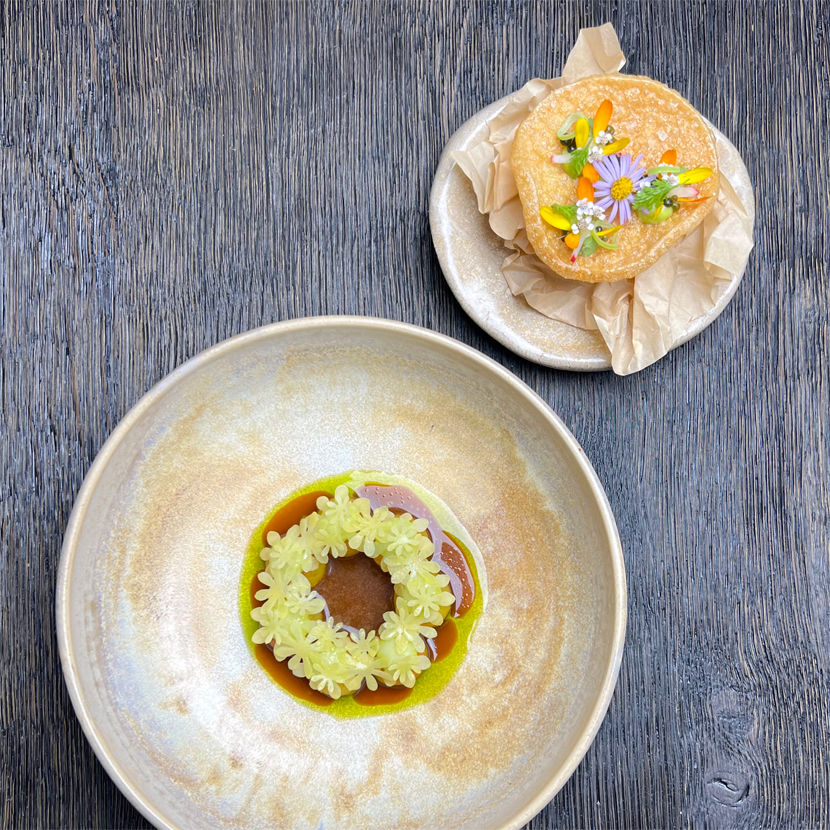
Velivery: What can people do to get even more into vegan cuisine? Where can they start?
Ricky: It’s not that easy in Germany. I’ve given up trying to preach to people. Telling people that meat is bad and vegetables are good. The facts speak for themselves. But I’m against being radical. I don’t think preaching is the right way to go about things. Meat eaters should be won over by flavor and creativity. They should discover how authentic vegan food is. The simpler it is, the better – too many additives are just confusing. Many people don’t want to make animals suffer any more. So the first thing I recommend is to reduce your meat consumption – to only eat it occasionally, and then to really celebrate it. However, it is possible to just stop eating it from one day to the next. After all, that’s the best way to stop smoking: just giving it up. And not necessarily using replacement products, which would be like using nicotine patches. My tip is to take joy in the diversity of healthy, plant-based food!
Velivery: Many people really do want to eat more healthily, and do their bit towards a better future for our planet. From your experience, how would you say it’s possible to make vegan cuisine work on a daily basis, given the stresses of everyday life? And how can people take the first step?
Ricky: Don’t make things too complicated for yourself! When many people think of veganism, all that comes to mind for them is raw veg. I want to invite people to think beyond the salad. For that, they need to enjoy experimenting a bit. Just go for it: open the fridge, put together a few fresh ingredients and different flavor types, and be open to trying new products… you don’t have to spend hours searching the internet for recipes – simply leave your prejudices to one side and be relaxed in how you approach the whole thing. Then, occasionally, you’ll feel like taking more time to think about individual ingredients, savoring every aspect of their flavor, and getting creative yourself.
Discovering nature’s treasures, both local and seasonal… the benefits of being a vegan
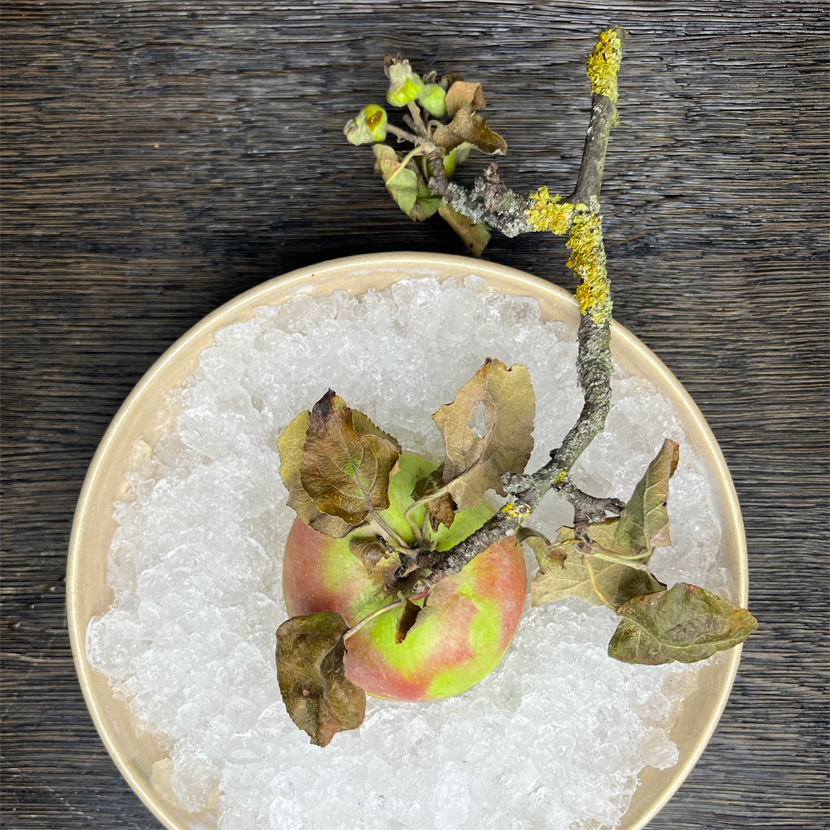
Velivery: Those are great tips for how to get started. Is there anything else you’d like to tell our readers?
Ricky: I’d like to encourage everyone to find out more about nature. To take into account what’s local and seasonal when thinking about their diet. What’s doable at the time of year and in the region where you are? These are questions that should also be asked if we’re trying to be sustainable. Fresh strawberries really don’t need to be eaten at Christmas, in my opinion. Why not start thinking about what you can grow yourself? Or at least about where you get your veg from? Is it covered in pesticides? It’s crazy how far things get shipped – sent all over the globe. Take time to find out what you can get from local producers. It might sound crazy, but it can be incredibly inspiring to look for food that’s grown practically on your doorstep – just take a walk through the forest and think about the treasures that can be found there. And it’s all for free! Many people are unaware of what flavor nuances can be achieved with ingredients like this. It’s an incredibly interesting topic. Edible wild herbs are an example of this. There’s so much to be tasted and to be discovered!
Velivery: Ricky, thank you very much for the interesting conversation, which I’m sure will have whetted many people’s appetites for vegan food!
Ricky: You’re welcome.
the recipes
If this has inspired you, then check out the three recipes Ricky has provided us with.
